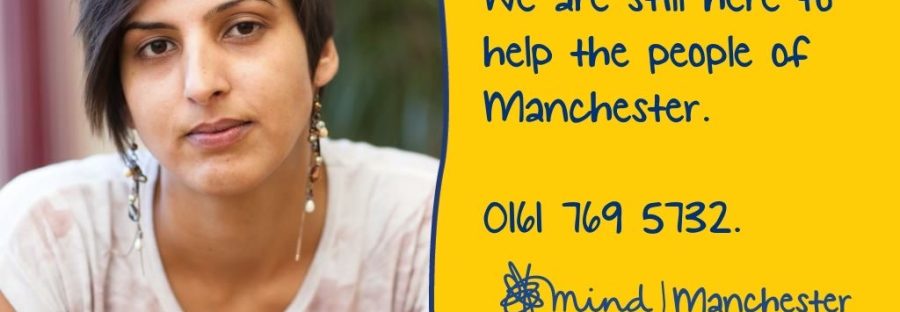Warning over mental health crisis as Manchester enters tier 3 lockdown
- Andy Burnham warns of mental health crisis due to harsh restrictions
- First lockdown saw rise of mental health issues
- BAME groups and young people more likely to be affected than other groups
Concerns are growing over people’s worsening mental health as tighter lockdown restrictions and a tight £22m financial support package are predicted to affect the most vulnerable.
Despite Andy Burnham’s fight to for the city to remain in tier two, Boris Johnson announced that Manchester would move into tier three restrictions on Friday.
The tighter restrictions were imposed after talks between the Prime Minister and Manchester’s local leaders failed to reach an agreement.
The Mayor raised concerns over a possible mental health crisis, because of rigorous restrictions and a tight £22m financial support package, which he said would not be sufficient to support the most vulnerable through the winter.

Mr Burnham said: “Health is about more than controlling the virus.
“If we trap people in punishing lockdowns during winter, we will have a mental health crisis on top of a pandemic to deal with.”
The city’s leaders have expressed disgust after receiving a £22m financial support package for the city’s £2.8m people, equivalent to £8 per person.
Growing concerns point to a mental health crisis as many more could lose their jobs, shelter and won’t be able to see their loved ones during winter.
Tier three lockdown will mean the closure of bars and pubs which don’t serve meals, no mixing between households indoors or outdoors, and the rule of six in outdoor spaces.

The first coronavirus lockdown witnessed a rise in mental health issues with the demand for mental health support double.
Health officials are worried about what will happen during a second lockdown and if there are enough resources and strategies in place to deal with a crisis.
Greater Manchester Mental Health Foundation reported that its helpline received 2,168 calls in July, compared with 1,187 in April.
Young people and BAME groups are more likely to experience poor mental health during lockdown than other groups.
More than half of adults (60%) and over two thirds of young people (68%) have said their mental health got worse during lockdown.
A survey of more than 14k adults by the mental health charity Mind, found that ‘systemic racism’ accounts for the greater mental health deterioration experienced by BAME groups during the coronavirus pandemic, with inequalities in healthcare, employment, finances and housing.
More than 60% of BAME people reported employment worries have negatively impacted their mental health during the pandemic, in comparison to 51% of white people.


